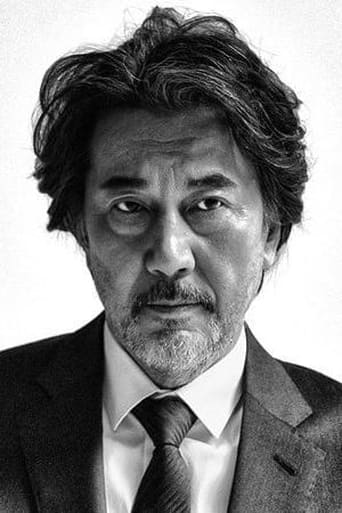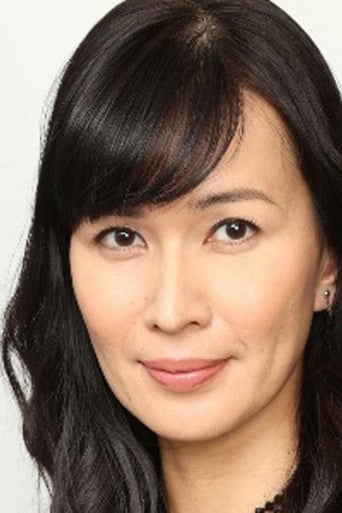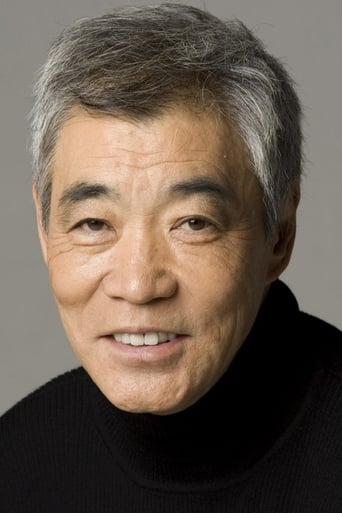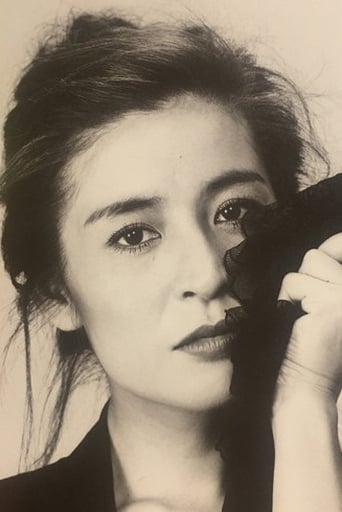Plantiana
Yawn. Poorly Filmed Snooze Fest.
Interesteg
What makes it different from others?
Steinesongo
Too many fans seem to be blown away
MoPoshy
Absolutely brilliant
Howard Schumann
Takura Yamashita (Koji Yakusho) has served eight years in prison for murdering his wife and her lover in a jealous rage and attempts to rehabilitate himself by opening a barbershop in an isolated corner of Japan. His past, however, catches up with him in Shohei Imamura's The Eel, co-winner of the 1997 Cannes Palme D'or with Kiarostami's A Taste of Cherry. Based on the Akira Yoshimura's novel Sparkles in the Darkness, The Eel is either an absurdist comedy, a drama about redemption, a surreal poem about states of consciousness, a thriller about jealousy and revenge, or all of the above. As the film opens, Yamashita, a worker at a large flour company, is startled to read an anonymous letter on the train coming home from work informing him that his wife cheats on him when he goes away on overnight fishing trips. Cutting one of his trips short, he returns home in the middle of the night to find his wife Emiko (Chiho Terada) in bed with a lover. Grabbing a butcher knife, he brutally stabs both of them to death then calmly rides his bicycle to the local police station and turns himself in. After eight years in prison, he is released and paroled to an elderly Buddhist priest. Alienated and afraid, Yamashita's only companion is a pet eel whom he confides in ("he listens to what I say"). He opens a barbershop in a rural part of Japan but his life becomes complicated after he saves a young woman, Keiko (Misa Shimizu), from suicide and gives her a job at his shop. Reminded of his former wife, Yamashita avoids intimacy but she is drawn to him nonetheless and offers him box lunches when he goes fishing.In spite of trying to keep his distance, Yamashita attracts some local characters that move the plot in a different direction. These include a young man who borrows his barber pole to attract UFOs, a fishing buddy who designs a device to catch eels without harming them, and his former prison mate, Tamotsu Takasaki (Akira Emoto), a foul-mouthed drunk who recites Buddhist Sutras and reminds him of his previous acts. The story, which until now has had a rich dramatic arc, soon descends into forced comedy when Keiko's mentally-challenged mother shows up doing flamenco dances and Keiko's former boyfriend returns demanding her mother's money. The townspeople and semi-gangster associates of the boyfriend join in a final free-for-all at the barbershop that might have been lifted from the Three Stooges.The Eel is at times a brilliant and involving character study about a man seeking to turn his life around. At other times, however, it is a discordant conglomeration of plots and subplots, one-dimensional characters, and heavy symbolism relieved only by wooden farce. The UFO sequence is very lame and the comic behavior of a man just out of prison seems inappropriate as he marches like a soldier then runs after a jogging team that is passing by. Imamura has said, "If my films are messy, this is probably due to the fact that I don't like too perfect a cinema." I know that things are not always neat and our lives are often a blend of drama and farce, but The Eel's odd mixture of quirky characters and widely disparate elements keeps it from coming together as a satisfying whole.
wolfovic
In the majority of movies I am most attached to the relations between characters and the evolution of this process. 'The eel' for that part is quite interesting as it focuses on a male protagonist with a dark past and a female counterpart equally in troubles.I was moved by the convincing performance by the two main characters. Besides them there are are only few, some really odd, other persons acting in the story.As others mentioned before in most parts of the movie the pacing is slow as it can get. This is not unusual for cinema from Asia and I am really comfortable with it, regarding this as some kind of watching meditation experience.The shooting is at times beautiful and stunning - the violent scene at the beginning or the colorful, vivid, surrealistic looking field of flowers the man finds the woman.Disliking programmed happy endings of romantic Hollywood movies I enjoyed the unfolding narration of 'The eel' having no clue what is going to happen next and in the end.Without the one situation which I found weak (one reviewer stated it as slapstick - the 2nd struggle in the barber's shop), there are numerous magical and disturbing moments in this movie.I fully recommend viewing Shohei Imamura's little gem.
room337
I actually enjoyed the film a lot. Maybe it's not one of the most articulated films, but there was liveliness in it,and i think that's the reason the eel got cannes. The lives of misunderstood,isolated finds the peace with themselves in a remote country side, reminded me of Mediterriano a bit. The man's murder, suicidal heroine and her mad mother, a guy who is obsessed with UFO, which seems unexplainable and their lives are narrated in a messiest possible way. I think this film is not for analysis or for coming to conclusion, the director wants to show a utopia where misfits can be forgiven and find a harmony with the world, where a human communicates with an eel. And where people can have a chance to get redemption,,,
gilli
This film deals with the theme of faith, its loss, its recovery. It has strong images, as usual in Imamura's films. It has also a well thought out plot development. But... it hints at directions that are never fully explored. There is a suggestion that the main character is insane. There are hallucinations. Keiko's behavior is also a little obscure at times. But as the core of the movie is melodrama, surreal aspects are only hinted at. That leaves a slight sensation of unachievement.





